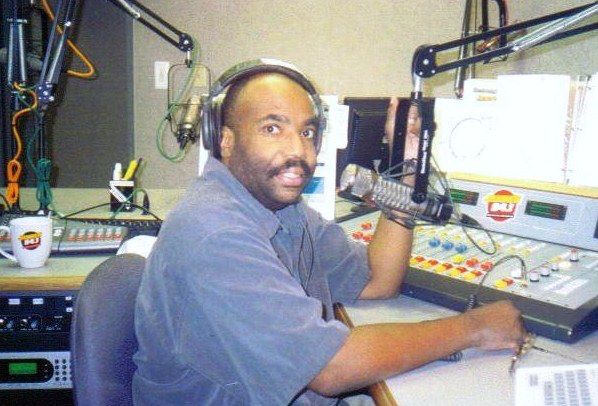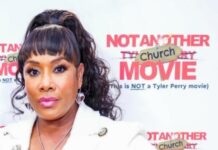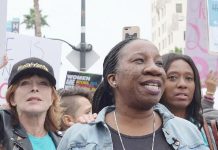
*Since February is considered “Black History” month, I’d like to contribute my two cents with regards to the radio industry that I’ve worked in for the last 30 years or so.
I have primarily worked in urban or what some might call “Black Radio,” so I’ll start there.
Many black owned radio stations have been bought out by larger, non-minority corporations. At one time (during the 1960’s – 1990’s) there were over 150 BOBs (Black owned Broadcasters) operating radio stations around the US. Today there are less than 25 black owned broadcasters. Only one company, Radio One, owns more than 20 radio stations. The remaining BOB’s are struggling with increased competition, shrinking ad revenues and the rise of rival mediums such as satellite and internet options, which have also drained listeners away.
These stations most often don’t have the larger budgets that their rival corporate stations have, so year in and year out they it’s tough for them to stay competitive and make a profit in their respective markets. These new corporate stations are much more profit results focused. Most corporate stations do very little now to enlighten (with news or op-ed stories) their communities they way all radio stations once did.
The R&B formats in many cities have fallen by the wayside in favor of Hip Hop and Rap formats. I believe that the situation is this way because of some “historical” changes that came about as a result of corporations taking over the majority of Black radio stations. I have worked in the radio business since 1982 when I started at my college radio station. I got bit by the radio bug and I have been fortunate enough to work on the air in cities including Washington, DC, Cleveland, Virginia Beach and most recently San Antonio. I have been around long enough to see on a first hand basis how the music industry and radio broadcasting businesses have been fundamentally changed.
Radio in the Black community at one time was put in place to help uplift people in addition to simply making a profit. The civil rights movement was largely fueled by black radio stations in many of the cities and those stations that helped to promote the cause were at that time black owned. In the late 80s and early 90s Clear Channel radio and a few other corporations convinced the F.C.C. via court action that government regulation was counterproductive to business. They argued that they shouldn’t be banned from owning as many stations as they could afford. Previously the government would only let a company own 2 or 3 stations in any given market. This kept monopolies from forming and it kept the price of owning a radio station affordable enough that black entrepreneurs were able to buy stations, especially in the larger cities.

After deregulation, Clear Channel made it their mission to buy out and own as many black stations as they could get their hands on. They flipped the formats from R&B to Hip Hop and they were in cahoots with the record companies who were pushing this new Gangster Rap music. (The promoters were in on it too, because the goal was to milk as much money out of the blk communities as possible, and it helped to also dismantle the political influence that these stations once had).
This is why so called super jocks like Tom Joyner and Steve Harvey, Michael Baisden, just to name a few were brought in to cut down on corporate costs. They could now put the TJMS (Tom Joyner Morning show) on one station and syndicate it to 100 other stations around the country. Thus, 99 other morning DJ’s lost their jobs, but profits for the corporate owners soared. This has been what the industry has been going through, and why there was such a big drop off of “morally driven” stations.
Music and videos, like it or not, have a strong influence on our young people in particular. The reason Hip Hop and the “Gangsta” lifestyle is so dangerous is because it teaches young people to emulate this so-called thug life. Sadly it’s like a cancer that’s self-destructive to our black society in particular and general society overall. I believe it would be effective if I also offered some solutions to some of these obvious problems that I’m trying to point out.
Hip Hop and Rap music or the Gangsta lifestyle is the problem or the “cancer” so how do we combat it? black on black crime is the cancer, now what is the cure? Racist cops are the cancer, now what is the solution? Do you see what I’m getting at? We need to not only point out these problems, but we need to find ways to collectively solve them, too.
Most Hip Hop stations are NOT black owned and the programming isn’t designed to uplift anything but the bottom line. In order to regain control of the music again, we must get our radio stations back!! We have to buy them back and/or get internet stations going that will counter alot of this non-sense. They are even trying to price people out of the internet with these ever-increasing copyright fees that often price the smaller internet stations out of business. This fight must continue.
Please forgive the shameless plug, but I do own two online radio stations (www.thegospelbridge.com and www.1067thebridge.com) and don’t play Hip Hop, Gangster Rap or other music lyrics that I have moral problems with. While it may have some impact on my profits, I’m ok with that. I do my best to produce products that I hope people will find positive and I don’t think I have to make a buck by exploiting our people. I live in San Antonio, a city with 3 Hip Hop stations and no adult Urban AC (or black station). None of these Hip Hop stations are black owned.
I really think that the powers that be down here really don’t want a responsible black station in this market. I just wish I could get an investment group to buy back some of these FM stations that have been taken over by people who are all too happy to see our young people embrace the thug life they push on these Hip Hop stations which will later result in their incarceration and on to the prison slave ship that they have been so seasoned for growing up to music that promotes a thug lifestyle.
I won’t even get into how many media and entertainment companies also have stock in these private prisons!! Most people don’t even know about the modern day slavery system we call the prison industrial complex. You should take a look at what Unicor (www.unicor.gov) is about. It will blow your mind what you can buy from prison labor. That’s why they want to keep the ghetto a pipeline to prison. We must continue to battle this media oppression.
Thanks for taking the time to read this and letting me share!!
30 year on air radio broadcaster, John Hairston, reports on that shrinking status of Black owned radio stations. Hairston is based in San Antonio, TX. Contact him at: [email protected].
We Publish News 24/7. Don’t Miss A Story. Click HERE to SUBSCRIBE to Our Newsletter Now!





